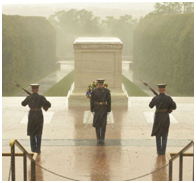When we think about the poor and vulnerable in our society who need our help, veterans usually don’t enter our minds. After all, they’ve proven how strong and self-sufficient they are by fighting for us in foreign lands, protecting American beliefs and interests. The reality is, though, that not all return home to their families, communities, and jobs.
About one in seven homeless people has served his or her country in the military. They tend to stay homeless almost two years longer than others and are 11% more likely to end up with a life-threatening disease while homeless. Another 1.5 million vets are living in poverty and poor living conditions, very close to becoming homeless. In 2011, 1/3 of all vets aged 18 to 24 were without jobs. In fact, their unemployment rate is greater than for non-vets. More and more men and women are coming back home with mental and emotional health issues and brain injuries. At least 70% of our returning warriors suffer from alcohol or other drug abuse problems. Suicide rates for all vets are increasing. In other words, many of these people return from active service to a life of illness and instability.
We can help our vulnerable vets by supporting programs offered by the V.A. and other governmental and private organizations. We can also continue to make it clear to them that they have not been forgotten, that we appreciate them and care about them—a simple “Thank you for your service” or “Welcome home” rather than ignoring them outside the grocery store goes a long way to re-including them in our human family. Most importantly, we should work hard toward the day when vets no longer exist because war is a thing of the past.

